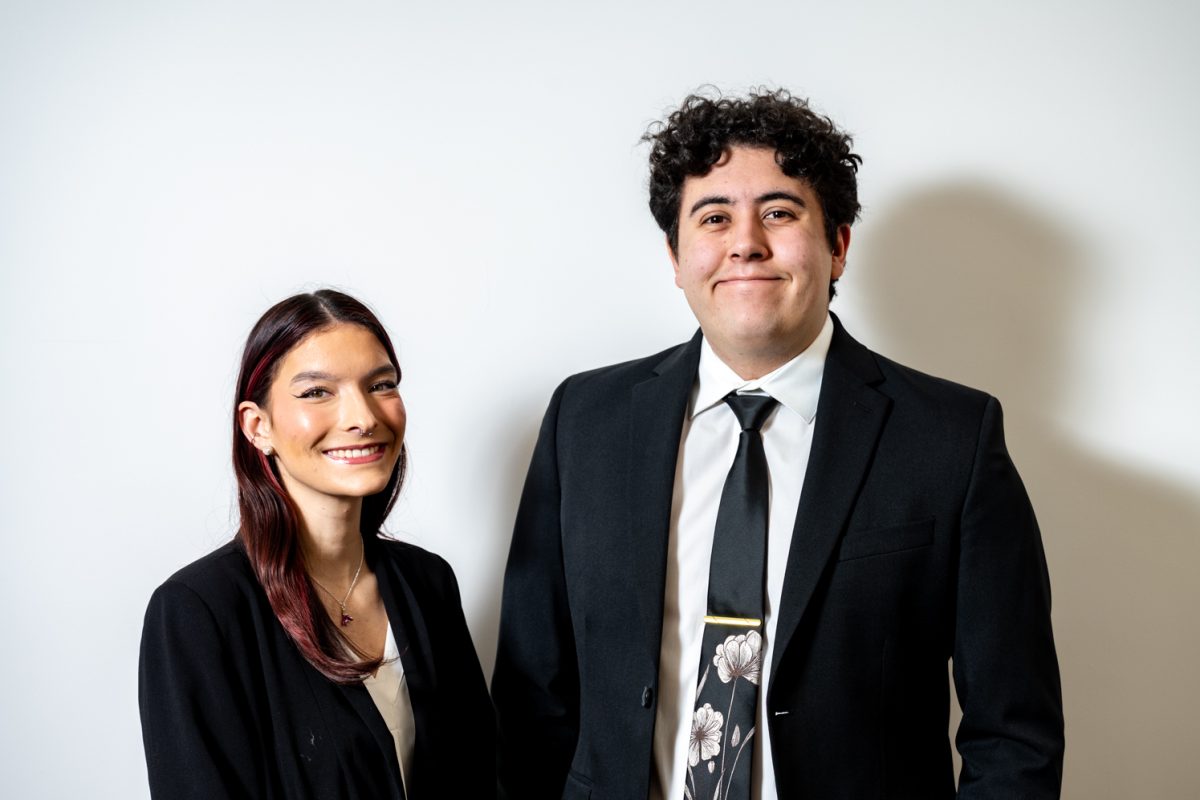A series of inquiries made by the Collegian this semester have revealed that legislation and other operational documents within the Associated Students of Colorado State University organization are not easily accessible to the public.
Documents were not accessible in locations in which the ASCSU Constitution states they must be made public, nor were they available for access on the ASCSU Records website. Inquiries to obtain copies of signed legislation and financial documents revealed gaps in accessibility and transparency within the organization. In addition, a Senate Budgetary Committee was established and active this semester, even though the legislation creating it was pocket vetoed.
Senate Budgetary Committee in violation of constitution

A Collegian inquiry this semester for Bill #4416, which created the Senate Budgetary Committee during spring 2015, revealed that the 2014-2015 ASCSU president never signed it. The bill amended the constitution and the committee met during the fall 2015 semester, but representatives were unable to prove the legislation officially passed.
“We realized that someone didn’t write the portion for Sam Guinn (2014-2015 president) to sign, so therefore there was no signature,” President Jason Sydoriak said. “It was near the end of the semester and maybe people weren’t completely focused, but I am really surprised at the oversight. The bill was poorly written.”
The committee has since been disbanded, though legislation to re-create it properly may be introduced in the spring, said Mike Lensky, the previous chair of SBC.
Records website not up to date
Documents that would indicate how ASCSU has spent or plans to spend their allotted $2.4 million in student fees, such as account balances, budgets or financial statements, are not posted on the records website for the current year or previous years. Full-time undergraduate students each paid $44.02 to ASCSU for the fall 2015 semester.
The website was also not updated to reflect legislation or other documents for the fall semester until the Collegian informally requested copies in early December. In an email to a reporter sent Dec. 4, President Jason Sydoriak apologized for the lack of accessible documents and wrote that he would be moving forward to resolve the issue.
The records website is missing all Student Fee Review Board minutes and all cabinet minutes for the fall semester. The SFRB oversees the allocation of more than $54 million in student fees.
“Eventually, we hope to get dual management (of the website) with the front desk so that it is easier to get cabinet minutes up (on the website),” Speaker Pro Tempore P.J. Seel said.
ASCSU plans to re-launch their website in the spring for the third time in the past two years. It is not required in any one person’s job description to update the website with legislation or other records, though marketing department job descriptions broadly state that the department is responsible for the website as a whole.
The ASCSU records website was updated to reflect some current legislation after inquiries by the Collegian were made.

File metadata displays the date each document was last modified. This date can suggest when the document was scanned to be uploaded on the website, since legislative documents should not have been modified after being signed and scanned. The file metadata suggests that a total of 11 pieces of legislation were modified around Dec. 8, even though nine of these had been passed prior to December.
In addition, the records website was missing nine pieces of legislation as of Dec. 13. This is nearly half of all the legislation that has been passed this semester, since the ASCSU senate has passed 10 bills and 10 resolutions.
Seel has been mainly responsible for uploading legislation to the website this semester.
“Since I’m responsible for senate, and since I’m responsible for senate records, it was my total responsibility during the time that we did not have a parliamentarian (to upload legislation), but hopefully the new parliamentarian and I will have a collaborative effort to maintain it in the future,” Seel said. “Something we might look at in the spring semester is creating an archival position.”
Of the 11 pieces of legislation that are posted on the website, two are not signed, two do not include the passage indication and three are missing or have invalid passage dates.
“We have a small office, so (getting legislation signed) is typically an efficient process,” said P.J. Seel, speaker pro tempore. “We’ve seen a lot of improvement in this administration regarding communication (between executive and senate).”
Records missing from archives department in the library
All meeting agendas, meeting minutes and various documents produced by each of the three branches critical to their operation are required to be submitted to the Archives and Special Collections department at the Morgan Library at the end of every academic year, according to section 213, section 306 and section 410 of the ASCSU Constitution.
However, a Collegian inquiry Nov. 20 revealed that the most recent document submitted to the library was from 2012, when the library received Bill #4115, the legislation that amended the constitution to include this requirement. However, that was the only document the library had received since the ASCSU 2008-2009 administration.

“ASCSU has had a really tough time over the years (with the constitution) because we have what I call ‘the churn,’” Chief Justice Nick Dannemiller said. “People come into the organization, do a lot of good things, bring a lot of good ideas, graduate, then new people come in with new ideas, and a lot of institutional knowledge gets lost.”
About 20 amendments have been made to the constitution over a very short period of time, Dannemiller said. This resulted in ASCSU creating a constitutional task force to resolve current issues in the constitution. In its current form, it states that the ASCSU administrative assistant, currently Kim Grubbs, is responsible for submitting records to the library. Grubbs has held this position for over 10 years, said Ashley Higgins, deputy chief of staff.
Because fiscal year budgets from 2013-2014 and 2014-2015 were not at the library, the Collegian made an informal request for ASCSU to provide those documents, as well as a budget for the current administration. After almost two weeks, the Collegian eventually submitted an official Colorado Open Records Act request after ASCSU was unable to immediately provide the documents, citing that they were unsure of the proper procedure to release them.
“Information coming to me from SLiCE advisors and my staff (was the reason they were not immediately provided),” Sydoriak said. “For some reason, everyone started freaking out. I think it’s really unfortunate that it was the initial reaction.”
The Collegian received the requested documents Dec. 7.
ASCSU representatives said they would be willing to share this and any information about ASCSU with the student body.
“If students don’t want to care about ASCSU then they shouldn’t necessarily have to,” Seel said. “We’re here to make things run as smoothly as they possibly can. If people do have questions, I know that everyone here (at ASCSU) is super willing to talk about the work they’re doing, the work they’ve done and the work they’re planning to do. I can’t think of any specific reason why a student would not be able to find something out.”
Collegian ASCSU Beat Reporter Erin Douglas can be reached online at news@collegian.com.





Sincerely • Dec 16, 2015 at 12:56 pm
Excellent story, Erin! I too am interested in the ASCSU’s failure to comply.